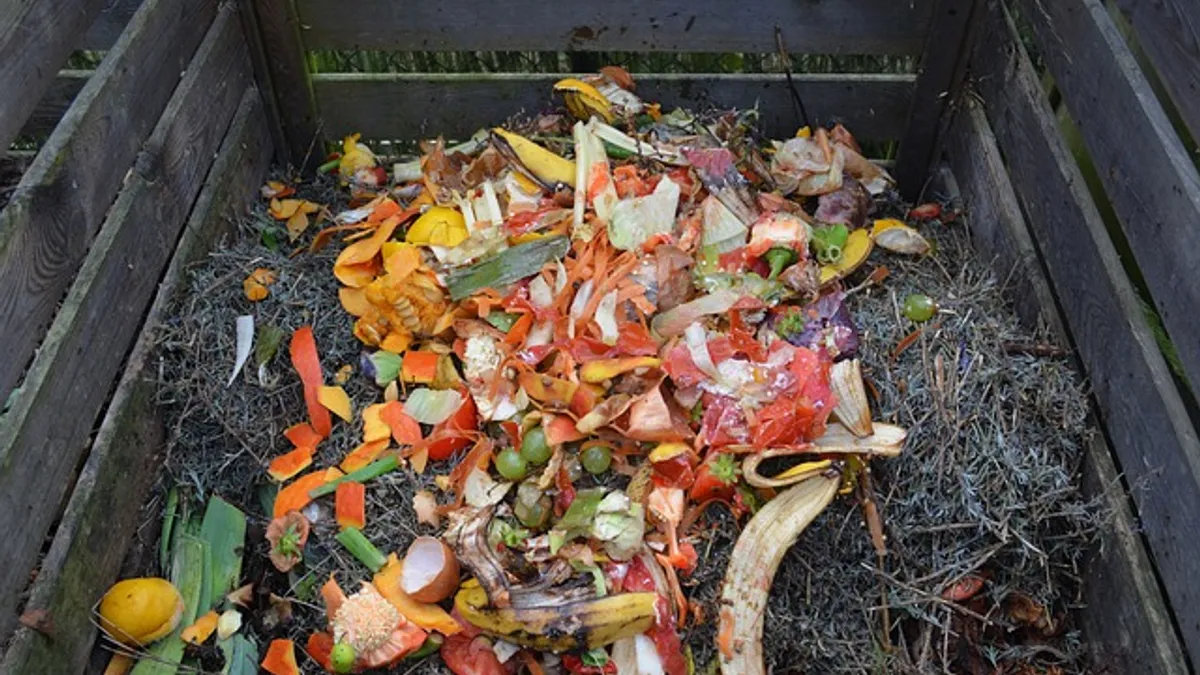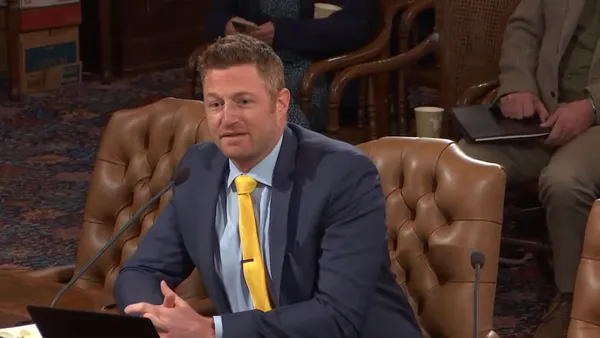Dive Brief:
- Ontario policymakers want to outlaw food waste from curbside trash collection by 2022, according to the CBC.
- About 33% of Ontario's total waste in 2014 was made up of food and organics, according to a recent discussion paper released by the province. In 2016, 37 municipalities in Ontario offered curbside organics collection, according to that same paper.
- Ontario already has a 15-point plan for becoming a waste-free province, which includes reducing the amount of food and organic waste going to landfills.
Dive Insight:
Because Ontario doesn't currently offer any sort of province-wide organics collection, there is enormous potential for collectors to get into the municipalities not already offering green bin pickup. While the discussion paper notes that 70% of Ontario's population is already being serviced for organics collection, the paper also notes that number is likely inflated, because only seven of the 37 municipalities provide curbside organics pickup to multi-unit buildings.
Across the border, food waste is a hot topic in the U.S. waste industry and it's continuing to gain attention from other sectors. Austin, TX continues to expand organics curbside collection and New York City has already established itself as a model of organics diversion — and retailers are starting to see the economic benefits in reducing food waste, too.
Recently, New Jersey Gov. Chris Christie signed a bill that aims to halve food waste by 2030. The goal sounds ambitious but, in terms of scale, pales in comparison to Ontario's desire for a full organics ban fom curbside collection. Ontario has about 4.5 million more residents than New Jersey and covers hundreds of thousands of square miles more than the state. If Ontario is successful in totally diverting food waste within five years, the province may inspire other government in the U.S. and Canada in pursuing similar, aggressive policies.














